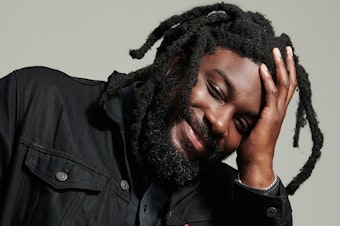Rachel Faulkner
Stories
-

Jennifer Doudna: What does CRISPR mean for the future of human evolution?
In 2011, biochemist Jennifer Doudna helped discover the genetic editing tool CRISPR. Today CRISPR is actively deployed in clinical trials with the potential to cure disease—and alter human evolution.
-

Priti Krishtel: How can we reform the outdated US patent system to lower drug prices?
The U.S. patent system was designed to foster innovation and serve the public good. But it's no longer working as intended. Lawyer Priti Krishtel explains the consequences and how to change that.
-
Kathryn Whitehead: How can we safely deliver vaccines to the right cells?
mRNA vaccines are groundbreaking—but the mRNA inside them is fragile. Kathryn Whitehead explains how scientists have created the right "packing material" to safely deliver these to the right cells.
-

Jason Reynolds: How Can We Connect With Kids Through The Written Word?
Jason Reynolds is an award-winning author and National Ambassador for Young People's Literature. This hour, Jason speaks with Manoush about reaching kids through stories that let them feel understood.
-

Sean Sherman: What Can We Learn From Indigenous Culinary Traditions?
The loss of Native American food traditions has been taking place for centuries. At Owamni, chef Sean Sherman is trying to change that by serving food that celebrates and preserves Lakota cooking.
-

Elise Hu: The Beauty Ideal
Beauty is in the eye of the beholder. But it's also shaped by global norms. This hour, journalist Elise Hu reflects on what's considered beautiful now, and how we'll think about beauty in the future.
-

Eli Pariser: How Can We Reshape Our Digital Platforms To Be More Welcoming Spaces?
Eli Pariser has an optimistic vision for our digital public spaces. He says that by structuring them like real-life parks, libraries, and town halls, we can create more welcoming, safe places online.
-

Mandë Holford: Could Snail Venom Someday Save Your Life?
Cone snails are deadly sea predators; their venom can kill fish and even humans. But chemical biologist Mandë Holford says that powerful venom can actually be used for good — to treat human diseases.